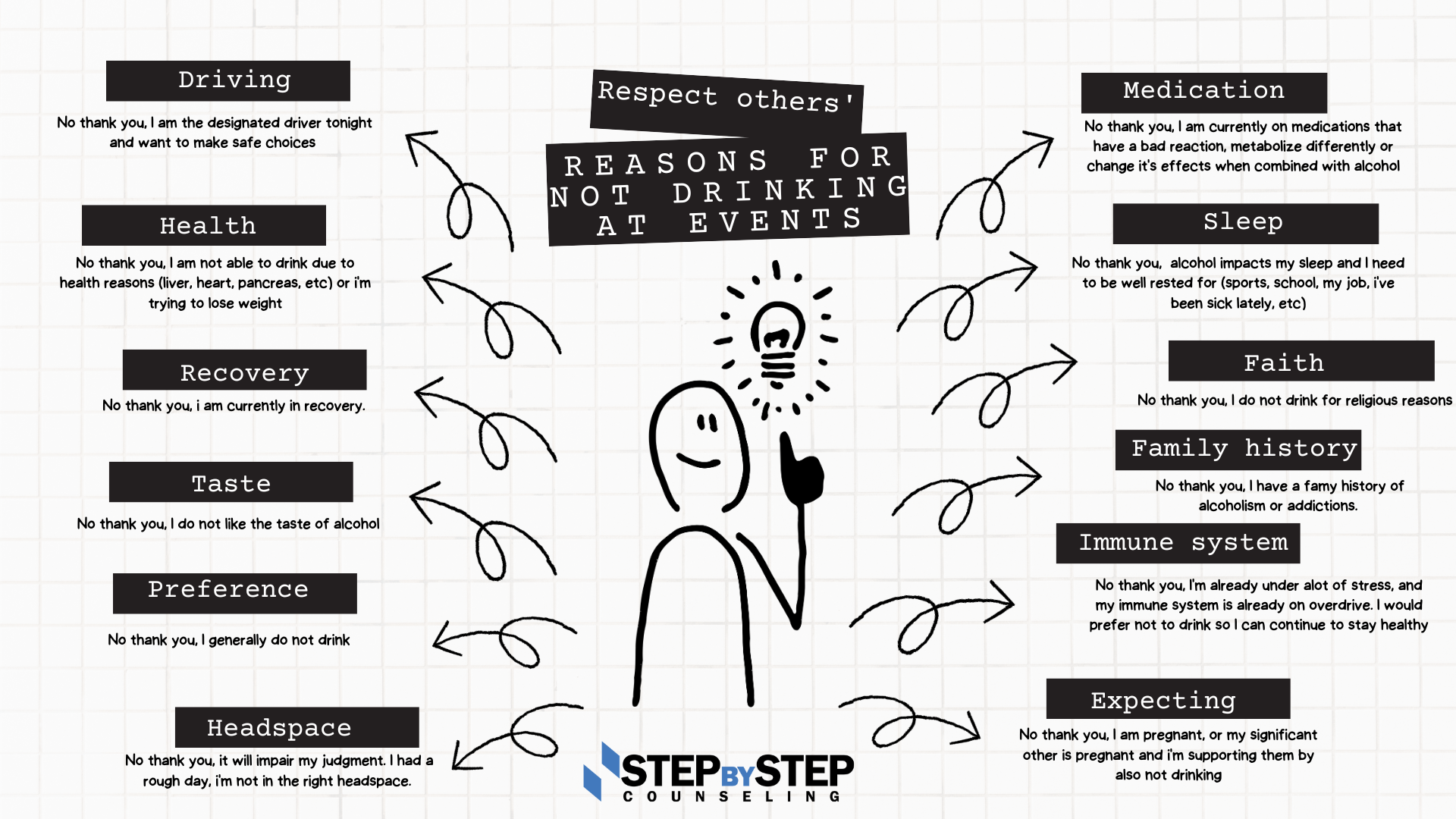The Culture of Drinking In many social settings, the presence of alcohol is prevalent, becoming deeply ingrained in our traditions, celebrations, and day-to-day interactions. Alcohol is often linked with socializing and is, at times, considered a social lubricant. Whether it’s a gathering of friends, a celebration, or a casual meetup, the expectation to partake in alcohol consumption can be significant. Understanding this cultural backdrop is crucial for our mental health clients as they navigate a world where the act of drinking is woven into the fabric of social connection.
However, within this cultural tapestry, it’s imperative for you to grasp a fundamental truth: YOU possess the autonomy to make choices that align with your own well-being. While the culture of drinking may exert pressure to conform, recognizing your own ability in making decisions about alcohol is empowering. Making choices in alignment with your own personal values and health goals is not only valid but commendable.
Embracing Sobriety Opting not to consume alcohol is a meaningful and empowering choice that holds both validity and strength. Sobriety, the journey of abstaining from alcohol, is a path that you may choose for a multitude of reasons, each rooted in YOUR personal values and well-being.
For my adolescent and adult clients, one compelling motivation for embracing sobriety is the consideration of mental health. Many individuals recognize that alcohol can have significant effects on the brain, and for those grappling with mental health concerns, choosing sobriety becomes a proactive and positive step. Research in neuroscience has illuminated the impact of alcohol on the intricate workings of the brain and has indicated that it can exacerbate existing mental health challenges.
Saying ‘No’ with Confidence Declining a drink, especially in social settings where alcohol is the norm, can indeed pose a challenge. Confidence stems from knowledge, and in this case, understanding why you are saying no. Armed with this knowledge, you can make informed choices. Assertiveness is not about confrontation but about expressing one’s choices with clarity and self-assurance. By articulating your decision to abstain from alcohol, you can emphasize the importance of self-care. In social situations, where the pressure to conform may be present, effective communication becomes a key aspect of navigating the interaction. Expressing gratitude for the offer while firmly stating one’s decision, perhaps with a simple “No, thank you,” accompanied by a confident smile, reinforces the message without alienating others.
Let’s use the approaching holidays as an opportunity to encourage a culture of empowerment. In this season of celebration, individuals should feel confident in their choices, knowing that the decisions they make contribute to their overall well-being. It’s a time to foster an environment where everyone is respected for the unique paths they choose to follow, whether it involves partaking in festive toasts or embracing sobriety.
As we navigate the holiday festivities, let’s celebrate the diversity within our mental health community. Whether someone chooses to raise a glass or prefers a non-alcoholic alternative, the common thread should be one of understanding, acceptance, and support. This season, let’s champion a culture where empowerment and respect resonate, creating a welcoming space for individuals to navigate the holidays with confidence and a sense of well-being.

